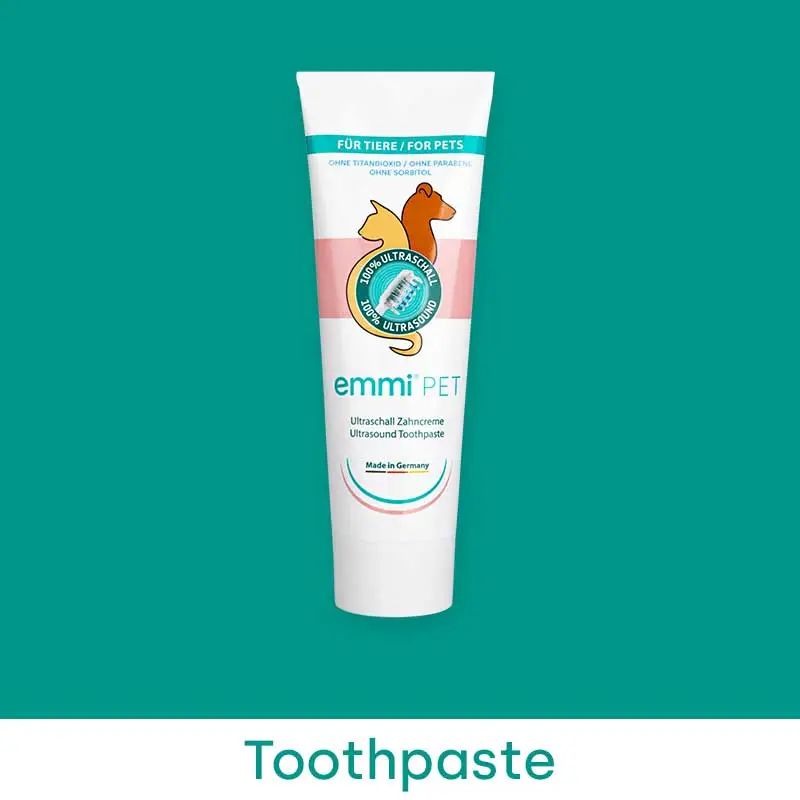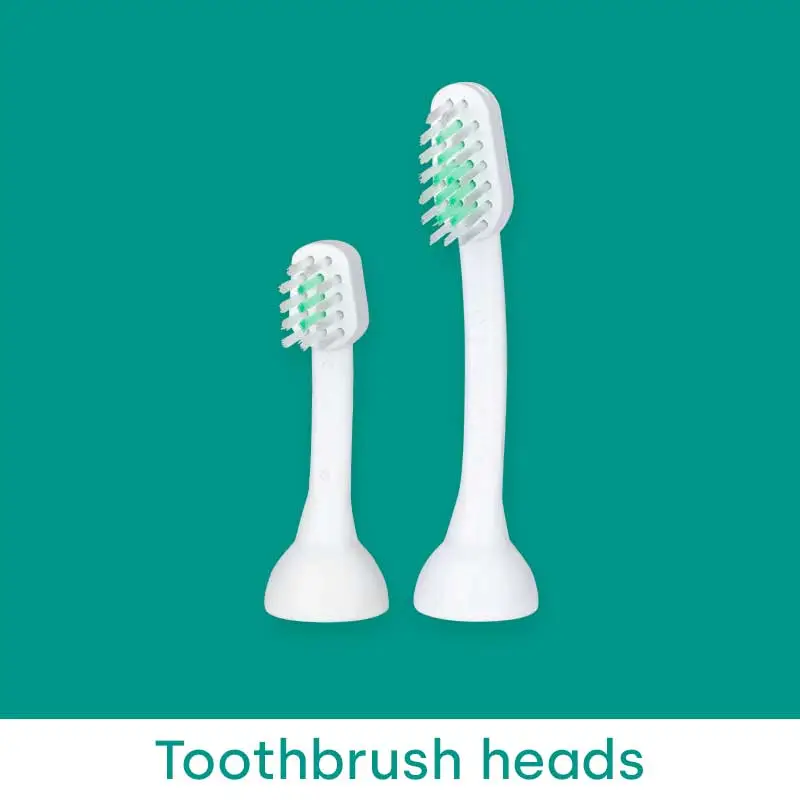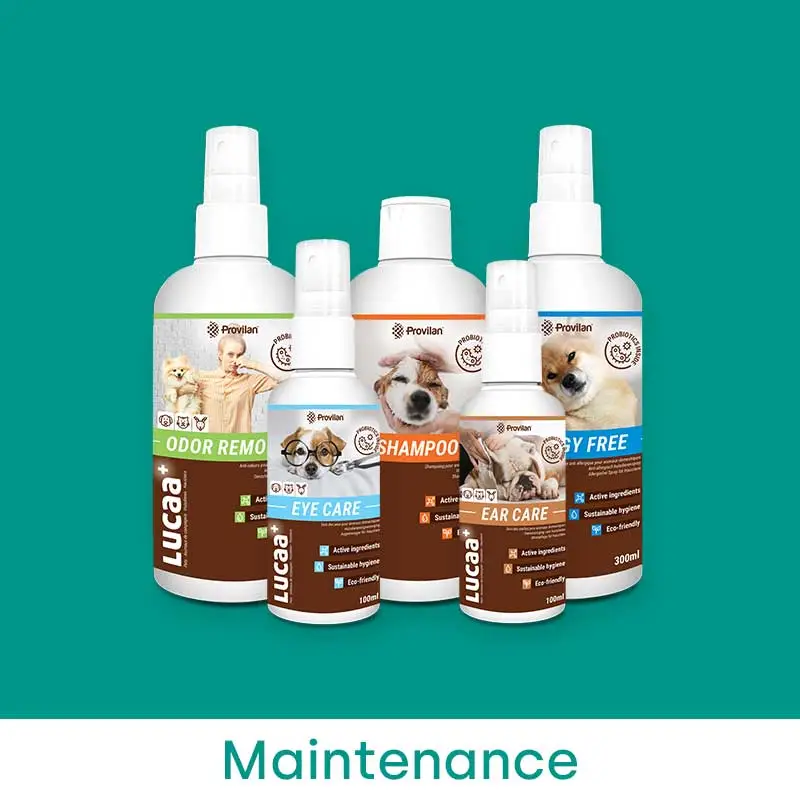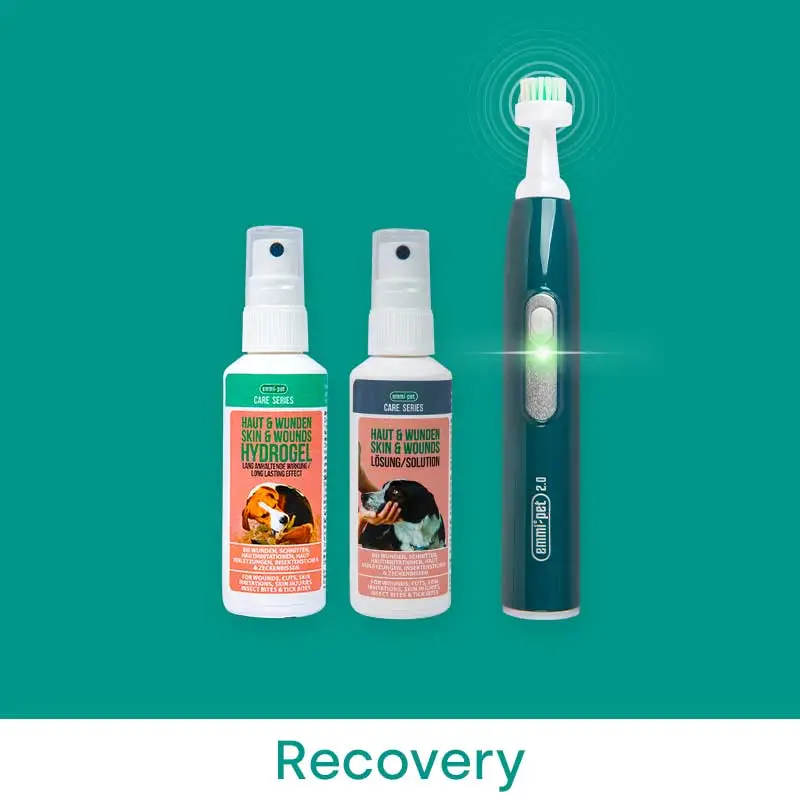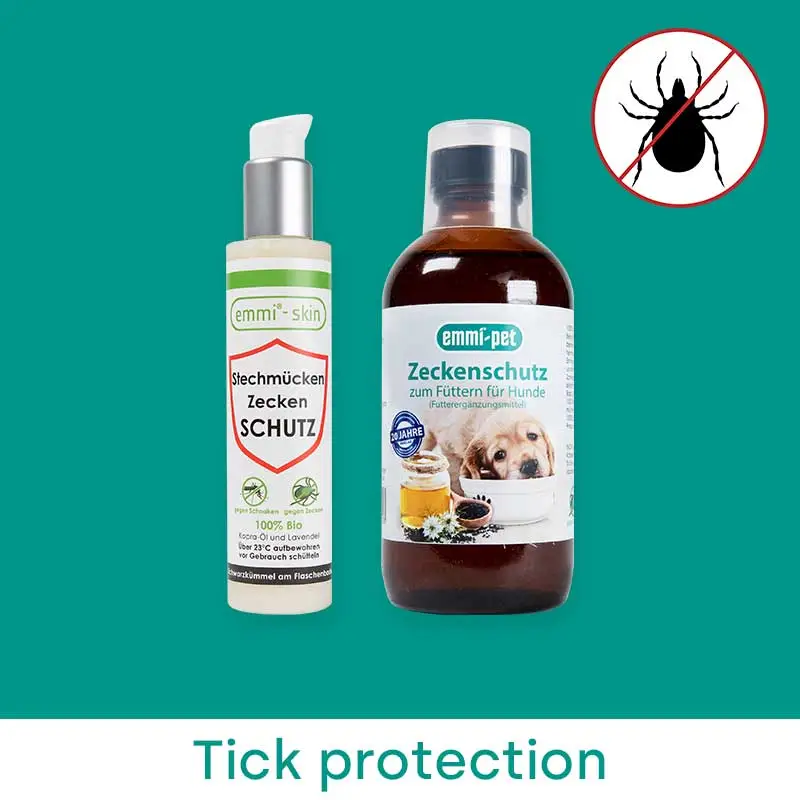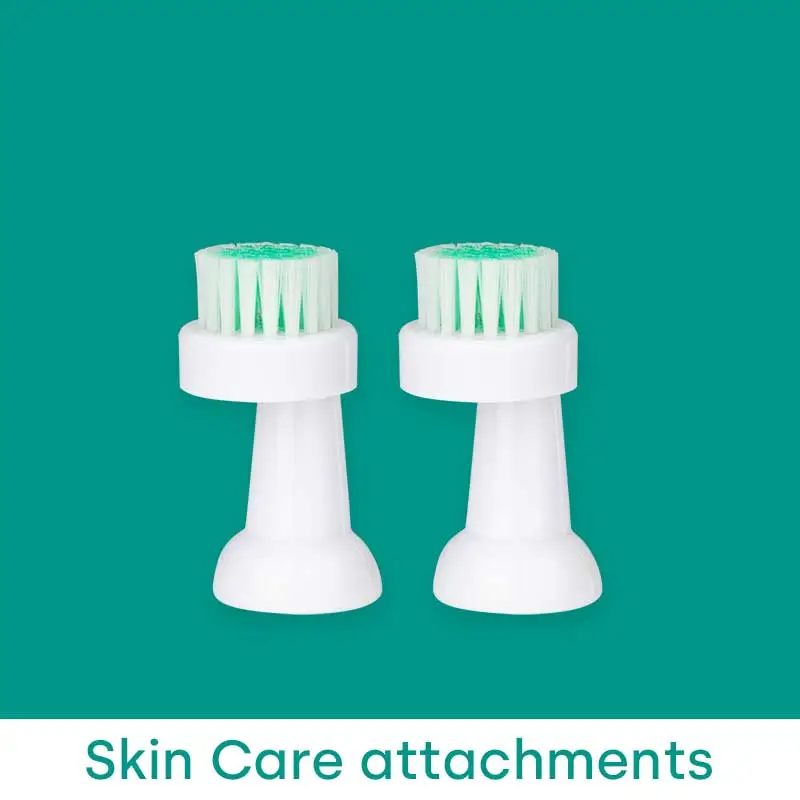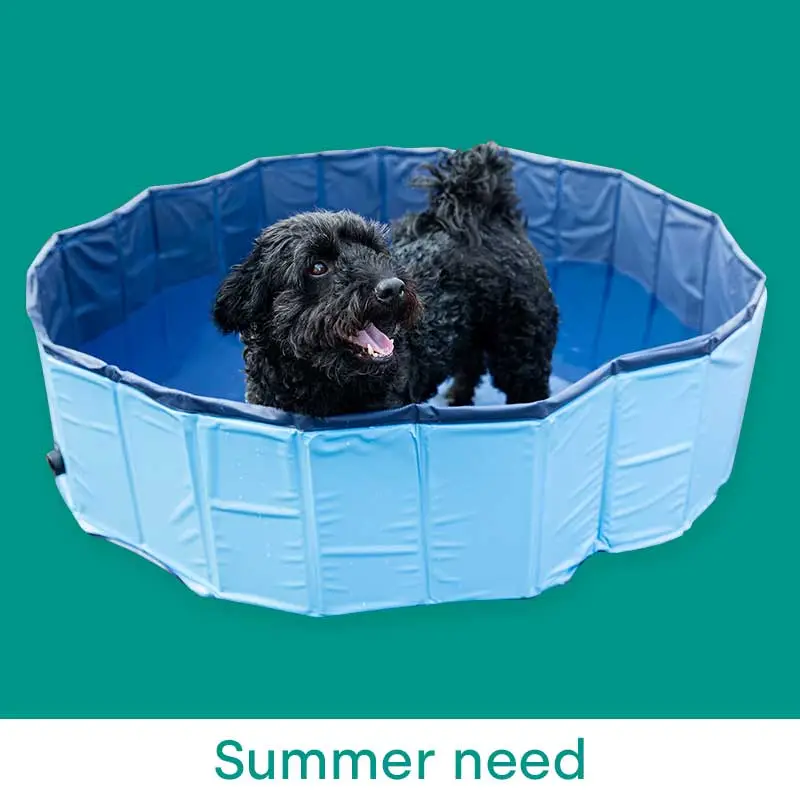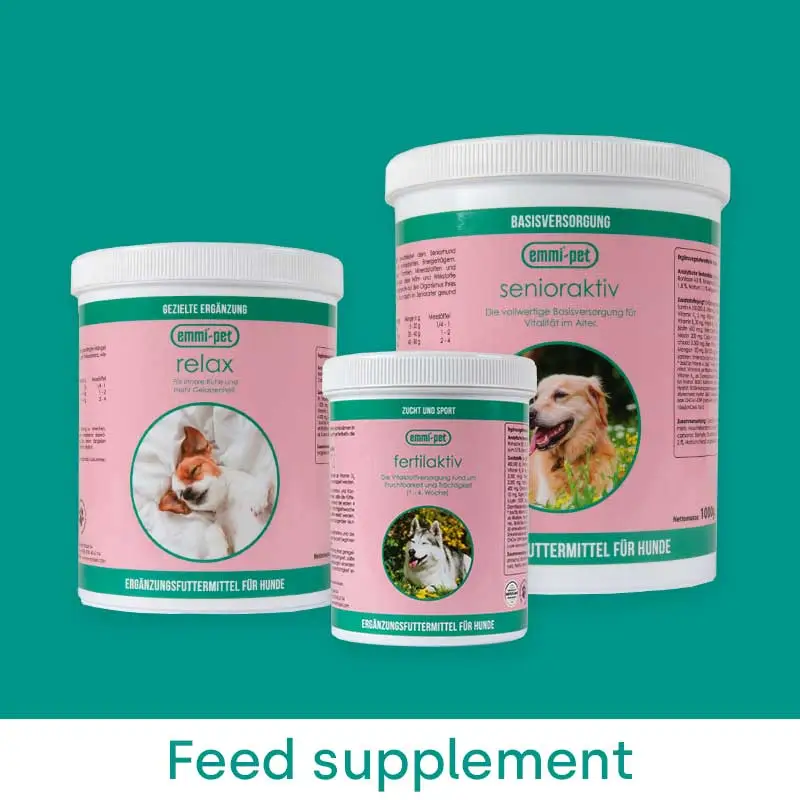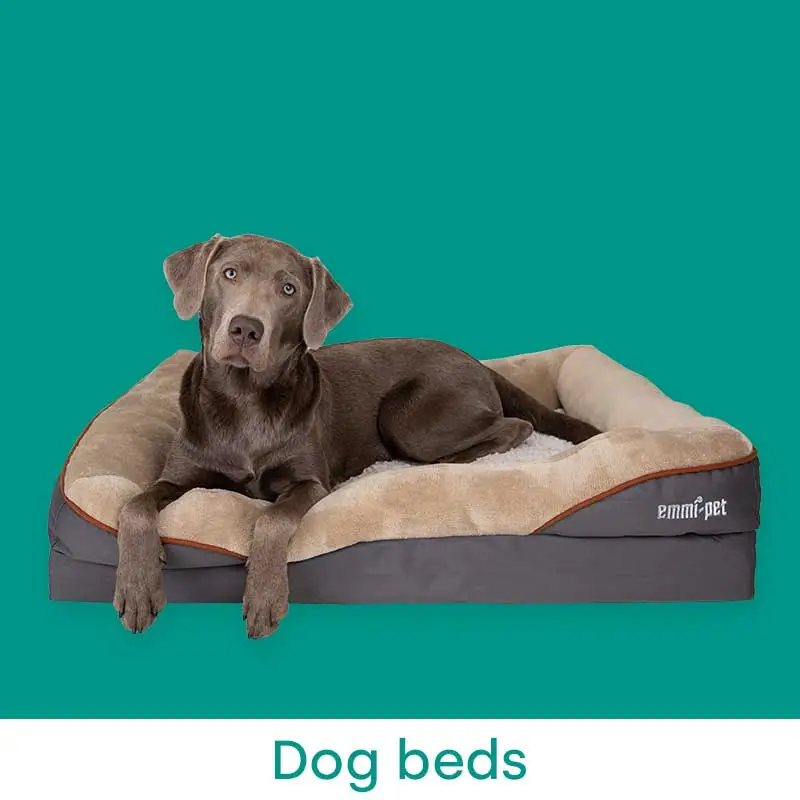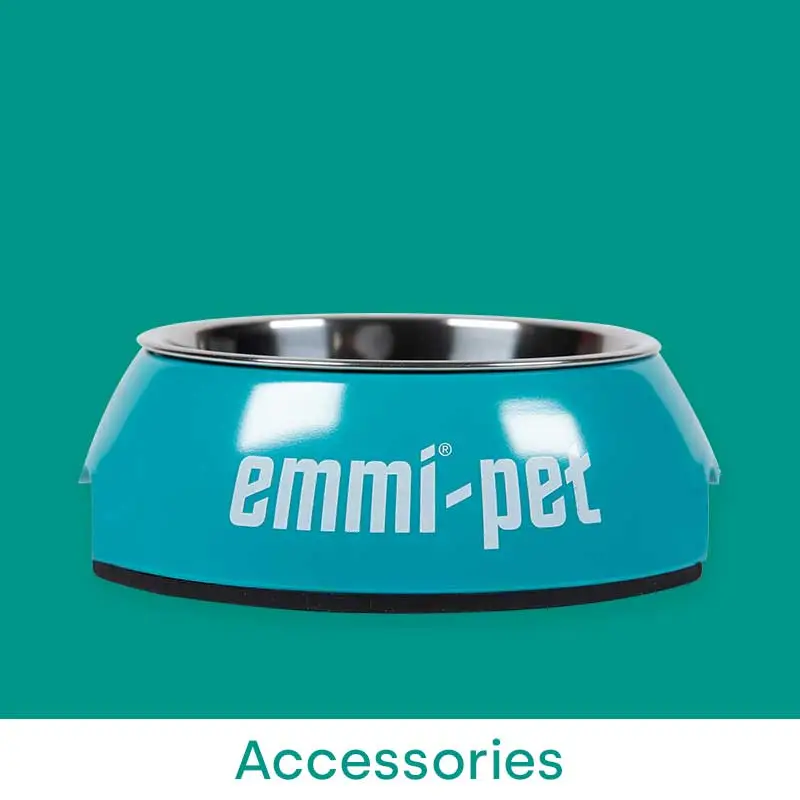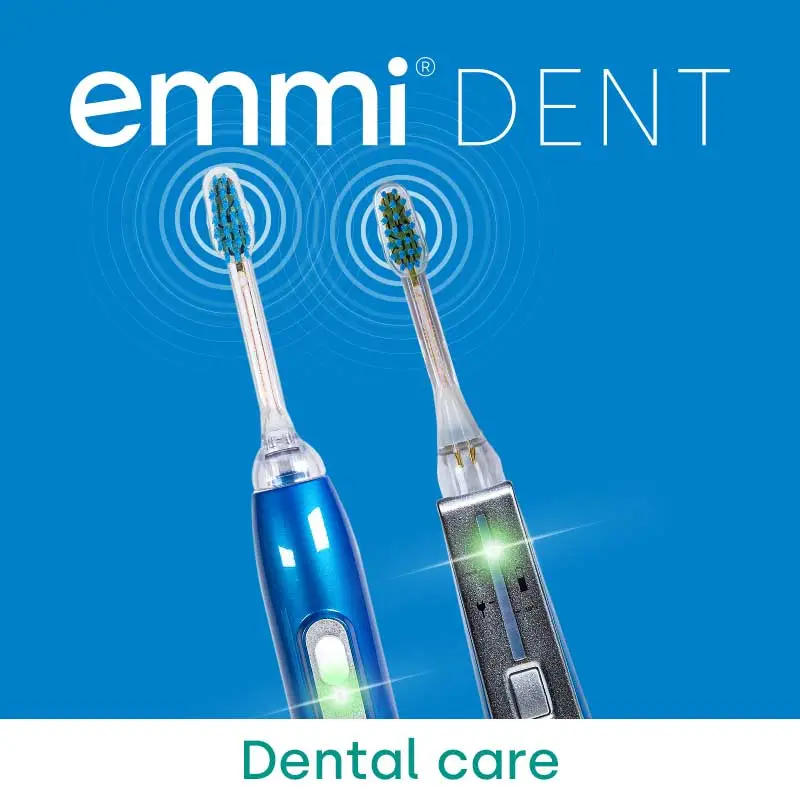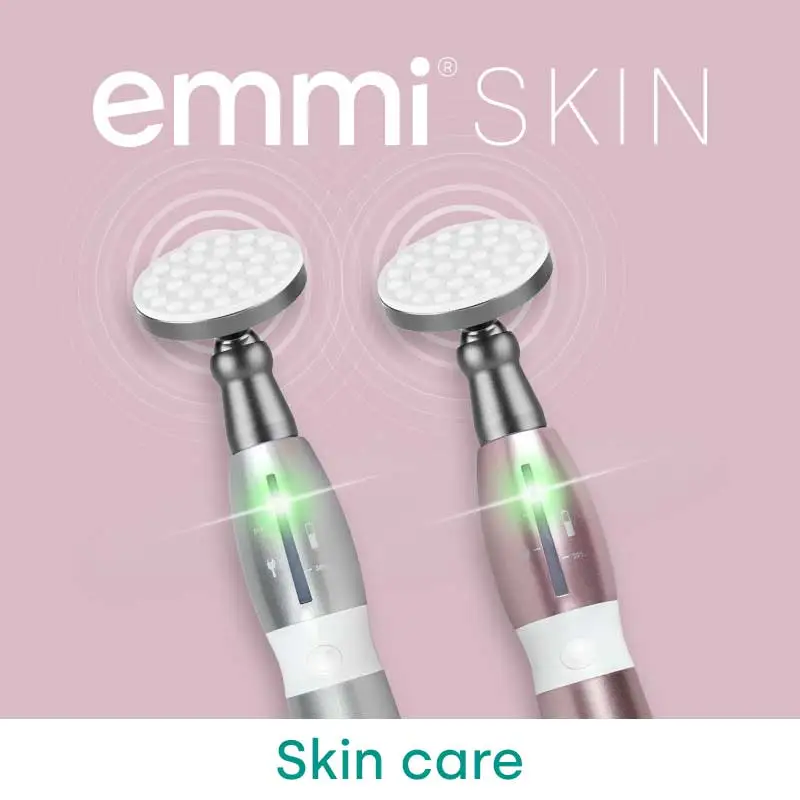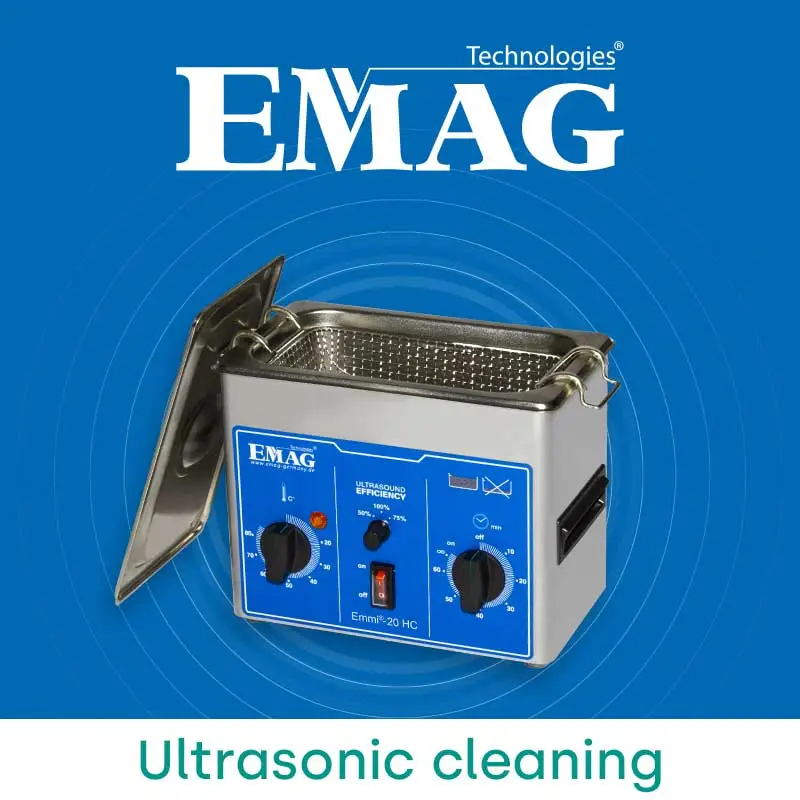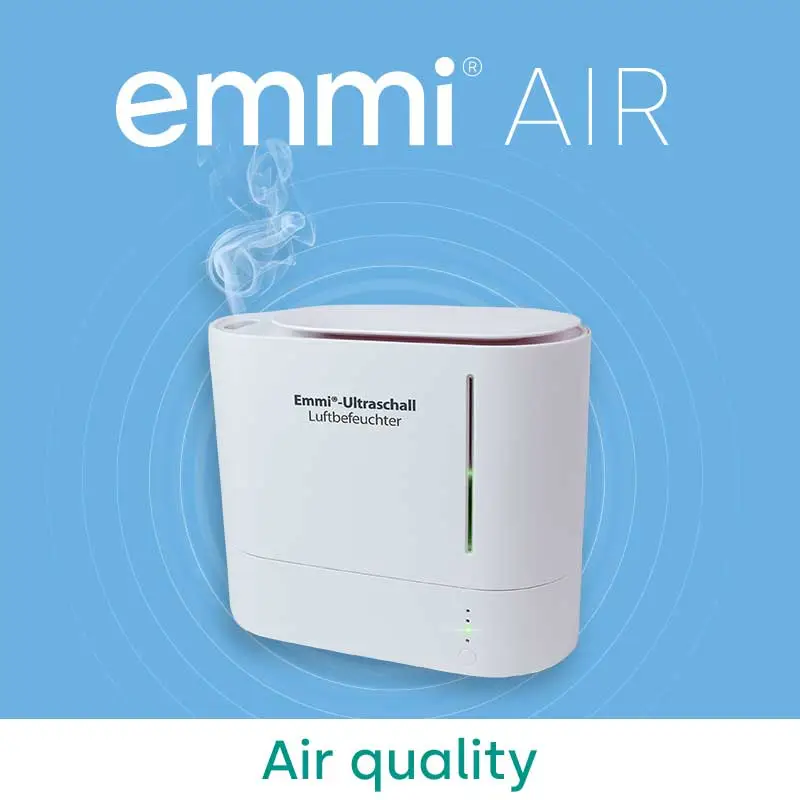
The health and quality of life of our beloved four-legged friends is close to our hearts. Especially as they get older, it is our concern to ensure that they enjoy a pleasant retirement in the best possible health. An often overlooked but very important part of pet health is oral hygiene. Dental problems in dogs and cats can not only lead to discomfort and pain, but can also affect our pets' general well-being and enjoyment of life. In this article, we will show you how you can improve the oral health of your older pets and thus increase their quality of life. From nutrition and proper care to special dental care technologies.
Recognising typical oral problems in older pets
To improve the quality of life for older dogs and cats, it is important to recognise and decipher oral and dental-related signs and symptoms before permanent damage occurs. Dental and gum disease is particularly common in older dogs and cats. Here are some typical signs of oral problems:
-
Bad breath: A foul odour from your pet's mouth may indicate dental problems.
-
Difficulty eating: If your pet eats slowly or cautiously, this could indicate pain in the mouth area.
-
Altered salivation: Excessive or altered salivation may indicate problems with teeth or gums.
-
Discoloured teeth: Yellow or brown stains on your pet's teeth can be a sign of tartar.
-
Red or swollen gums: This can be a sign of gingivitis or periodontitis.
We know that the early signs of dental problems are often very subtle and easy to miss. Therefore, it is important to establish regular oral hygiene practices in your everyday life together and to have your pet's oral health checked regularly by the vet. This way, you can ensure that your pet feels well as they get older.
Effective daily oral hygiene practices for pets
To maintain quality of life for older dogs and cats, it is essential to practice proper oral hygiene. Of course, this includes brushing their teeth every day. You can minimise plaque and tartar with a soft toothbrush such as our emmi-pet ultrasonic toothbrush and special toothpaste for dogs and cats. Chews and special treats also help you to clean the teeth mechanically.
A professional dental cleaning at the vet can also remove stubborn tartar and reveal and treat hidden problems. However, diet also plays an important role. Dry food often helps to rub off dental plaque. Specialised diets can also reduce the formation of tartar. Sugary treats should therefore be avoided at all costs. Instead, you should switch to high-quality proteins and fatty acids when feeding your four-legged friend.
New technologies such as our emmi-pet ultrasonic toothbrush and a special toothpaste are very helpful for the oral hygiene of older pets. This product has been developed to maintain dental health for longer and to combat plaque and tartar more effectively.
Please note: Chronically ill pets require adapted dental care. Careful oral hygiene is therefore particularly important for dogs and cats with conditions such as diabetes or kidney problems. You should discuss the best care methods and products with your vet on a pet-specific basis to support the dental health of your chronically ill pet.
Benefits of professional teeth cleaning for pets
Professional teeth cleaning for pets can significantly improve the quality of life of older dogs and cats. Here are some of the benefits:
-
Prevents dental problems: similar to humans, regular teeth cleaning can help prevent serious dental problems such as tartar, gingivitis and periodontitis.
-
Improves your pet's breath: Bad breath in dogs and cats is often the result of dental problems. A professional dental cleaning can help improve your pet's breath.
-
Reduces pain and discomfort: If dental problems are left untreated, they can cause pain and discomfort when eating. A professional dental cleaning can help alleviate these problems.
-
Support your pet's overall health: Poor oral hygiene can lead to other health problems, including heart, kidney and liver disease. By taking care of your pet's dental health, you are also supporting their overall health.
-
Increases your pet's well-being and quality of life: A healthy pet is a happy pet. By taking care of your pet's dental health, you are helping to improve their quality of life and increase their well-being.
To choose the right veterinary dentist, it is important to look for professionals who are experienced in treating dental problems in dogs and cats. Regular dental check-ups and professional dental cleanings are crucial for the dental health and general well-being of your four-legged friend.
Influence of diet on the oral hygiene of pets
As you know, the oral health of our pets has a major influence on their well-being. An optimised diet can significantly improve the quality of life of older dogs and cats in particular.
Dry food, for example, helps to rub off plaque and thus reduce tartar. However, it is important to avoid sugary treats and instead focus on high-quality proteins and fatty acids. For older animals with special dental needs, dietary adaptations are often necessary. For example, dogs with dental problems can benefit from special diets that make chewing easier and support oral health.
Regular check-ups at the vet are also crucial for recognising dental problems at an early stage. But we can also do a lot at home to promote our pets' dental health. From daily brushing with our emmi-pet ultrasonic toothbrush and special toothpaste, to the use of chews and special treats. All of these measures help to ensure that our dogs and cats keep healthy teeth and a happy smile.
After all, it is our responsibility as owners to keep our pets' quality of life as high as possible. And good oral hygiene is an important part of this.
Dental care technologies for older pets
The quality of life for older dogs and cats can be significantly improved through the use of innovative dental care technologies such as our emmi-pet ultrasonic toothbrush. Its use is an effective and safe method of caring for the oral health of our pets.
Ultrasonic technology makes it possible to efficiently minimise plaque and tartar and also ensures thorough cleaning of the teeth. It is completely painless and stress-free for your pet, which is a great advantage, especially for older or sensitive dogs and cats. Expert opinions and clinical studies confirm the effectiveness of these advanced dental care technologies. Regular use can contribute to improved oral health and therefore a better quality of life for your pet.
For example, the risk of general dental problems and diseases can be reduced through the use of ultrasonic toothbrushes. At the same time, improved oral health leads to more pleasant breath, which can strengthen the bond between you and your pet.
Don't forget that good dental care is just as important for your pet's health and well-being as a balanced diet and regular exercise.
Special dental care for chronically ill pets
When caring for pets with chronic illnesses, such as diabetes or kidney disease, special dental care is essential. It is important to consider the individual health needs of your pet. Consistent dental care can help prevent infections and improve the quality of life for older dogs and cats.
It's worth talking to your vet about suitable dental care methods and products. Pain management and comfort during dental care should be a priority. It is also important to adapt the grooming routine to the pet's health condition. Perhaps your fourb some friend needs a relaxing dental care routine, while a pet with dental problems such as tartar or periodontitis may need more intensive care. Dental considerations for pets with chronic conditions play a large role in the selection of products and methods.
The bottom line is that adapted dental care can make a significant contribution to improving the quality of life of older or chronically ill pets. After all, good dental health means more than just fresh breath - it can significantly improve your four-legged friend's quality of life in the long term.

